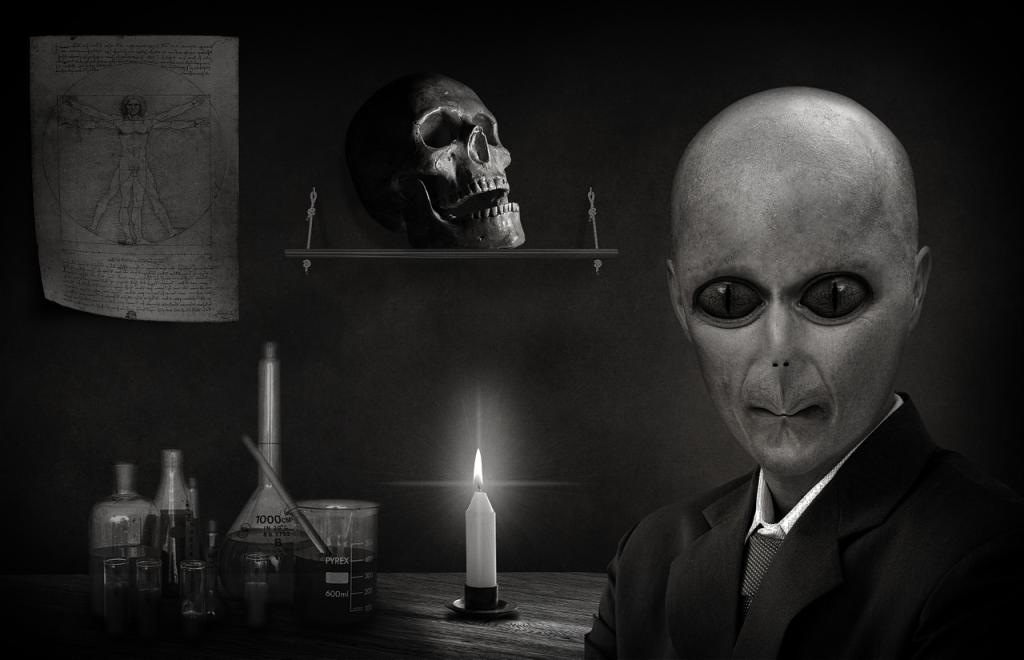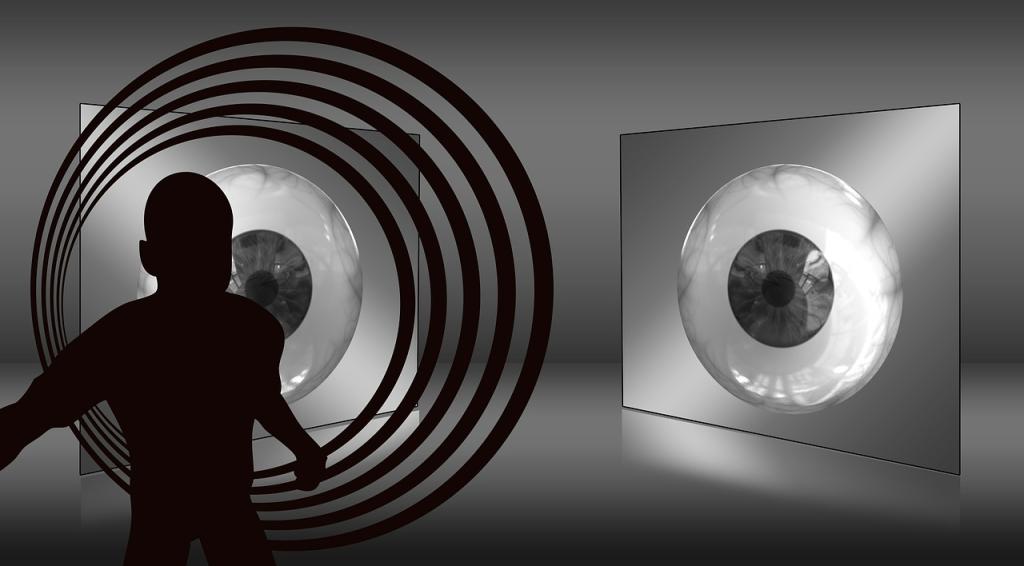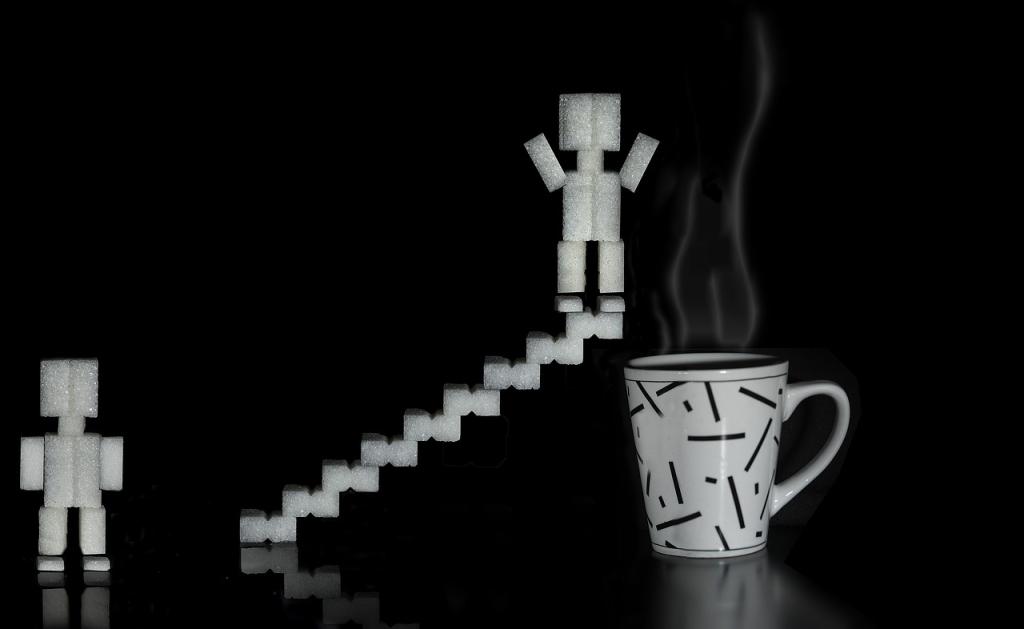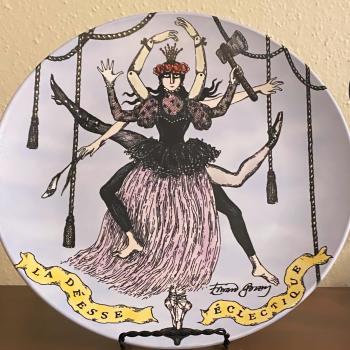As hard as I try, I can’t get away from shadow work. And by that, I mean no matter where I look, people will not stop talking about it.
A couple of days ago, I saw someone ask about rituals to help let go of past traumas, and several people confidently responded, “Shadow work.” However, I also saw someone post in multiple online groups, asking for help getting started with shadow work, and the response was absolute crickets.
Actually, I take that back. One person replied, “Work with Saturn,” which, I mean, is not the worst suggestion, but it also wasn’t particularly helpful without any context or instruction.

Whenever I see someone recommending shadow work, I have to stop myself from responding, “Good answer! What is it?” Because that’s what bugs me about the whole thing: As popular a term as it’s become to bandy about, it doesn’t really mean anything — or at least, it’s being tossed into conversations without anyone really knowing what they mean when they say it.
Are we talking about initiatory ordeals? Shamanic crises? Psychoanalysis? Cognitive-behavioral therapy? The Hero’s Journey? All of these include concepts that could be described as shadow work, but there’s not an overarching Shadow Work pennant that we can cram them all under.
The Jung and the Restless
The Swiss psychiatrist Carl Jung defined the Shadow as the unconscious part of the human psyche, similar to Sigmund Freud’s concept of the Id. It’s our animal nature, and it gives us the potential for both creation and destruction. As humans, we tend to reject or ignore the parts of ourselves that we don’t like, and those parts can become aspects of our shadows. Or, if we’re wrestling with, say, low self-esteem, our shadows could be comprised of really positive things that don’t gel with our negative self-image.
The “goal” of Jungian psychology, then, is to learn to acknowledge and accept the Shadow, thus integrating the unconscious and the conscious selves into a Whole Person™. Which is nowhere near as easy as it sounds (and it honestly doesn’t even sound that easy).

I am not quite sure how shadow work made the jump into modern Witchcraft, but it’s currently as prevalent a topic as moon water and cord-cutting. And while I do think actively working to integrate one’s shadow can make one a healthier person and in turn a more competent and effective Witch, it’s important to realize that a) it’s a long-term process, not a one-time ritual, and b) it can be painful and scary and damaging.
And I really want to reiterate here that shadow work is a very new concept. Medieval Witches were not all up in each other’s business like, “It sounds liketh ye’re goyng through somethyng, Rowena. Ye should really doon some shadowe werk about it.”
If you want to pursue shadow work as part of your personal practice, that’s awesome. Just remember that as a psychological theory, it’s not, like, Traditional Craft or anything. It’s a tool that’s compatible with Witchcraft, not a requirement.
One Is The Shadiest Number
Probably the best contemporary example of something that could be considered shadow work is 12-Step Recovery, specifically Steps Four and Five:
Four – Made a searching and fearless moral inventory of ourselves.
Five – Admitted to [the] God[s], to ourselves, and to another human being the exact nature of our wrongs.
In practice, a “searching and fearless moral inventory” means writing out a list of the people we resent, the reasons we resent them, the things those resentments affect (self-esteem, financial security, etc.), and “our part” — meaning what we’ve done to contribute to a given resentment, or why we’re unable to let it go. And I am not exaggerating when I say this was one of the hardest things I’ve ever done.
Coming up with a list of people I resented was actually easy, since I’d been internally categorizing them for years. The difficulty was looking at my part in those resentments: The more I wrote, the more I had to face that I was extremely entitled and thought the world owed me a lot of damn favors. And I ended up feeling like a really, really bad person.

But that’s why we work with sponsors — recovering alcoholics who have already been through the Steps, and who can keep us moving forward and help us learn how to forgive ourselves and start healing. My own sponsor had me write out a fear inventory along with my resentments, which ultimately forced me to look at my untreated anxiety issues and do something about them. I probably wouldn’t have sought treatment when I did if I hadn’t had someone there to help me identify the problem and coax me into get it managed.
The point here is that if we’re going to engage in any kind of shadowy self-exploration, we need to do so with someone else acting as a guide and/or spotter: a sponsor, a therapist, or even a covenmate we trust implicitly. Trying to assimilate our unconscious without any kind of supervision or support — at least when we’re first getting into it — will be ineffective at best and psychologically scarring at worst.
Once we’ve accomplished some integration with someone else tethering us, we can start doing work independently (like how those of us in recovery utilize Step Ten).
No Tea, No Shadow
If you’re going to throw yourself into shadow work, my one, non-negotiable rule is this: Be kind to yourself. I mean it. Even with outside support, it’s easy to slip into dark places when we’re looking at the ugly parts of ourselves, so it is almost medically necessary that we treat ourselves as gently as possible while we’re in the middle of it.

For more information on the subject, I highly recommend Rebel Witch: Carve the Craft that’s Yours Alone by Kelly-Ann Maddox. She covers shadow work in-depth and offers tips, basic techniques, excellent resources, and a lot of encouragement. You really couldn’t ask for a better starting point.
And you know what? If you never find a decent starting point, or if you just feel like shadow work isn’t something you can handle right now, that’s totally okay, too. Above and beyond anything else, whether we’re banging around the unconscious or not, we always need to be honest with ourselves. If your objective assessment is, “no shadow work for me,” then you’re facing the situation and speaking your truth. And I cannot help but be proud of you for that.


















